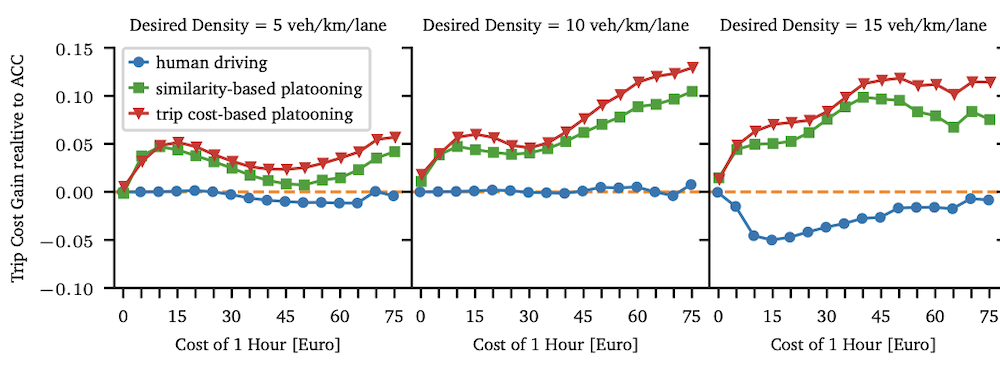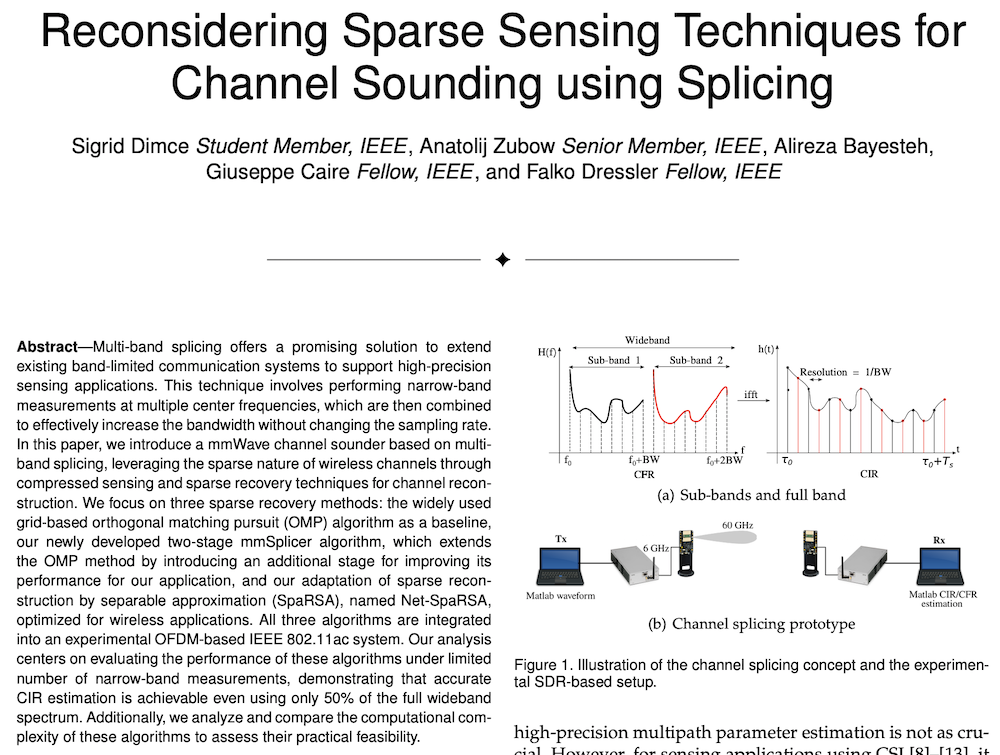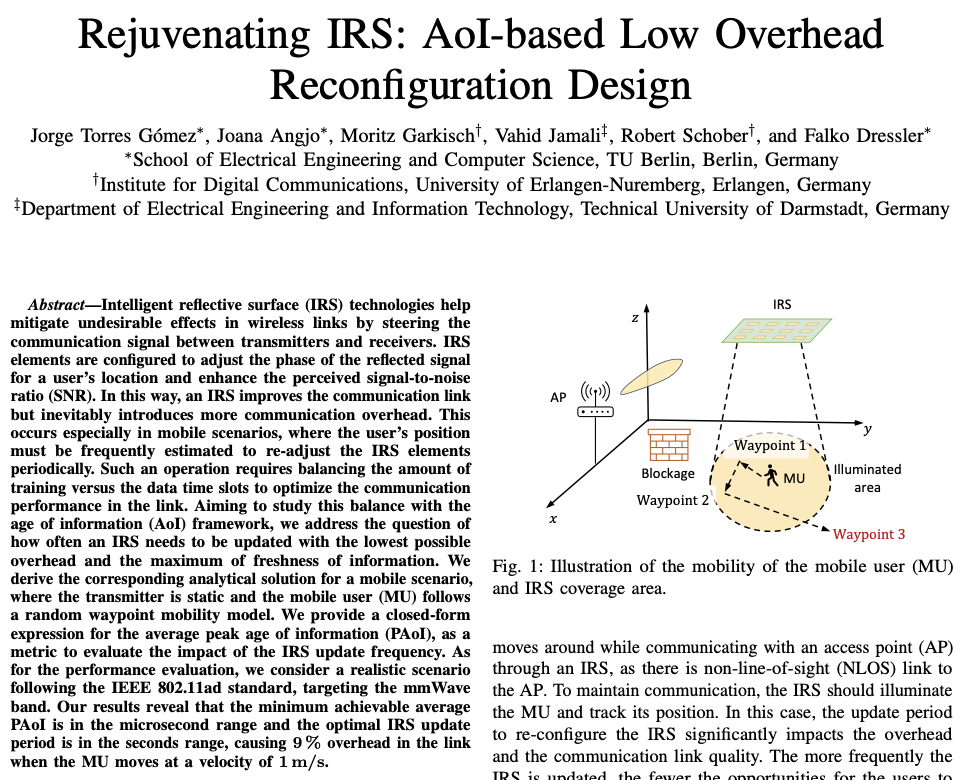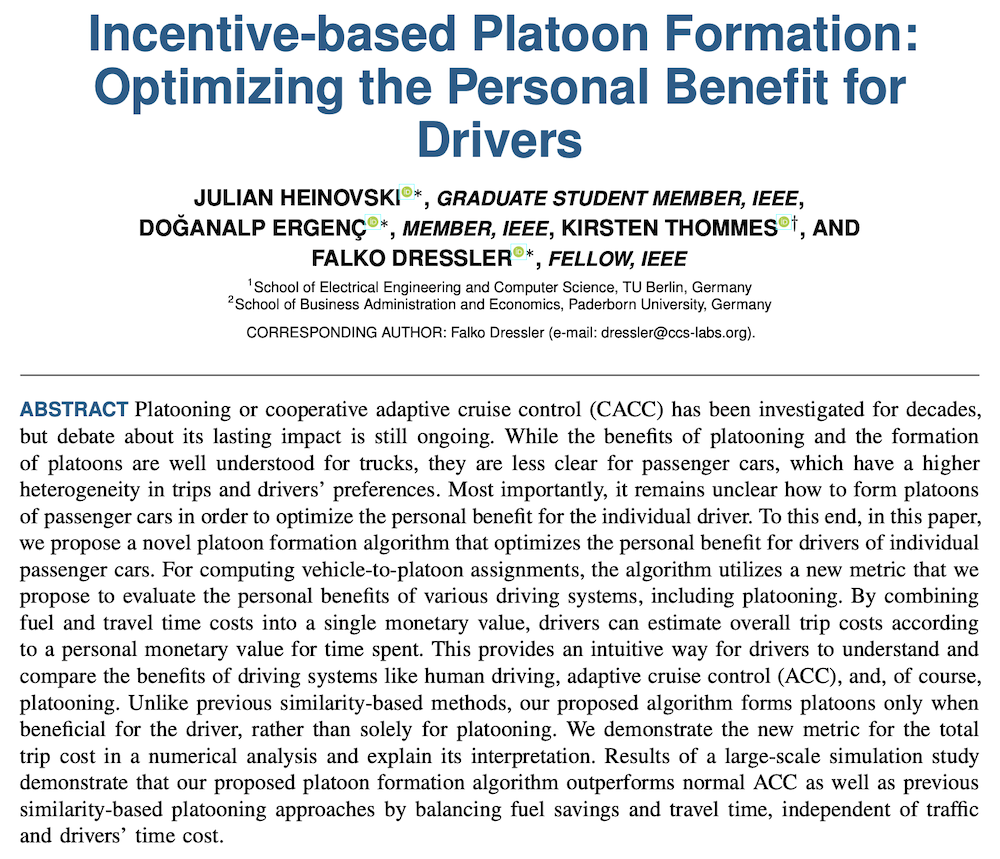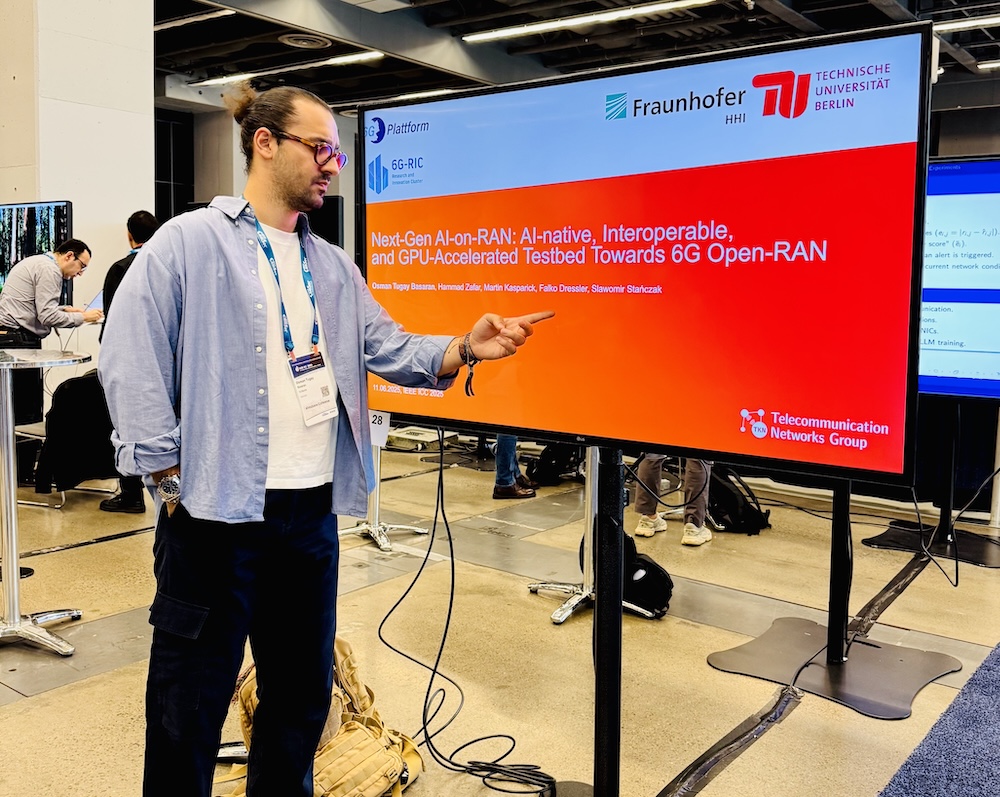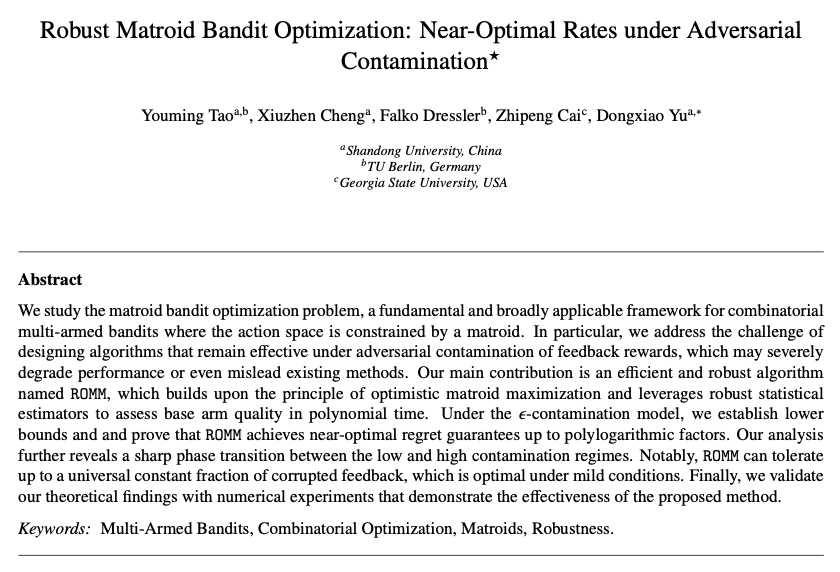Literature Database Entry
kappes2019safety4bikes2
Raphael Kappes, Andrii Matviienko, Julian Heinovski, Walter Funk, Lennart Brink-Abeler, Melvin Isken, Jule Deiters, Sebastian Fudickar, Andreas Hein, Wilko Heuten, Susanne Boll, Mario Franke, Florian Klingler, Christoph Sommer, Falko Dressler, Annika Johnson and Clemens Kraetsch, "Safety4Bikes: Assistance Systems for Cycling Children to Increase Safety," Institut für empirische Soziologie (IFES), Friedrich–Alexander University of Erlangen–Nuremberg (FAU), Materialienband, 1/2019, August 2019, pp. 1–23.
Abstract
Cycling is a popular urban mobility solution. However, cyclists are more vulnerable and relatively unprotected compared to other road users. In Germany, the number of accidents with cycling children increases dramatically from age 8 to 14. This is not least due to their insufficient cycling skills and understanding of traffic, which is a detriment to their safety. The project Safety4Bikes, which is funded by the German Federal Ministry of Education and Research (BMBF), grant no 16SV7669, aims at mitigating the risk of young cyclists by developing appropriate modular assistance systems that detect situational hazards and promote safe behaviour. Within the project, we are developing novel visual, tactile and acoustic signals integrated in bicycles and helmets to convey information for children in an understandable and non-distracting way. Embedding the cyclist into the surrounding context, we develop and investigate sensor technologies, algorithms and routing strategies needed for identification of the behaviour of cyclists on the road, traffic signs, safest routes and trajectory corrections. Additionally, we focus on the enhancements of Car2X communication to enable the exchange of information with other vehicles. The project follows a user centric approach in which the developed system components are continuously tested and adapted to the needs and characteristics of the target group. Answering the question of how the components will have to interact with the user is an important part of the research. Therefore, we evaluate the efficacy of the designed interaction and recognition methods as well as sensors, algorithms and routing strategies through laboratory experiments and bicycle simulators. With controlled test-track experiments on a test route, the components are further evaluated and optimised.
Quick access
Authors' Version ![]() (PDF on this web site)
(PDF on this web site)
BibTeX ![]()
Contact
Raphael Kappes
Andrii Matviienko
Julian Heinovski
Walter Funk
Lennart Brink-Abeler
Melvin Isken
Jule Deiters
Sebastian Fudickar
Andreas Hein
Wilko Heuten
Susanne Boll
Mario Franke
Florian Klingler
Christoph Sommer
Falko Dressler
Annika Johnson
Clemens Kraetsch
BibTeX reference
@techreport{kappes2019safety4bikes2,
author = {Kappes, Raphael and Matviienko, Andrii and Heinovski, Julian and Funk, Walter and Brink-Abeler, Lennart and Isken, Melvin and Deiters, Jule and Fudickar, Sebastian and Hein, Andreas and Heuten, Wilko and Boll, Susanne and Franke, Mario and Klingler, Florian and Sommer, Christoph and Dressler, Falko and Johnson, Annika and Kraetsch, Clemens},
title = {{Safety4Bikes: Assistance Systems for Cycling Children to Increase Safety}},
institution = {Institut f{\"{u}}r empirische Soziologie (IFES), Friedrich--Alexander University of Erlangen--Nuremberg (FAU)},
location = {N{\"{u}}rnberg, Germany},
month = {8},
number = {1/2019},
pages = {1--23},
type = {Materialienband},
year = {2019},
}
Copyright notice
Links to final or draft versions of papers are presented here to ensure timely dissemination of scholarly and technical work. Copyright and all rights therein are retained by authors or by other copyright holders. All persons copying this information are expected to adhere to the terms and constraints invoked by each author's copyright. In most cases, these works may not be reposted or distributed for commercial purposes without the explicit permission of the copyright holder.
The following applies to all papers listed above that have IEEE copyrights: Personal use of this material is permitted. However, permission to reprint/republish this material for advertising or promotional purposes or for creating new collective works for resale or redistribution to servers or lists, or to reuse any copyrighted component of this work in other works must be obtained from the IEEE.
The following applies to all papers listed above that are in submission to IEEE conference/workshop proceedings or journals: This work has been submitted to the IEEE for possible publication. Copyright may be transferred without notice, after which this version may no longer be accessible.
The following applies to all papers listed above that have ACM copyrights: ACM COPYRIGHT NOTICE. Permission to make digital or hard copies of part or all of this work for personal or classroom use is granted without fee provided that copies are not made or distributed for profit or commercial advantage and that copies bear this notice and the full citation on the first page. Copyrights for components of this work owned by others than ACM must be honored. Abstracting with credit is permitted. To copy otherwise, to republish, to post on servers, or to redistribute to lists, requires prior specific permission and/or a fee. Request permissions from Publications Dept., ACM, Inc., fax +1 (212) 869-0481, or permissions@acm.org.
The following applies to all SpringerLink papers listed above that have Springer Science+Business Media copyrights: The original publication is available at www.springerlink.com.
This page was automatically generated using BibDB and bib2web.

